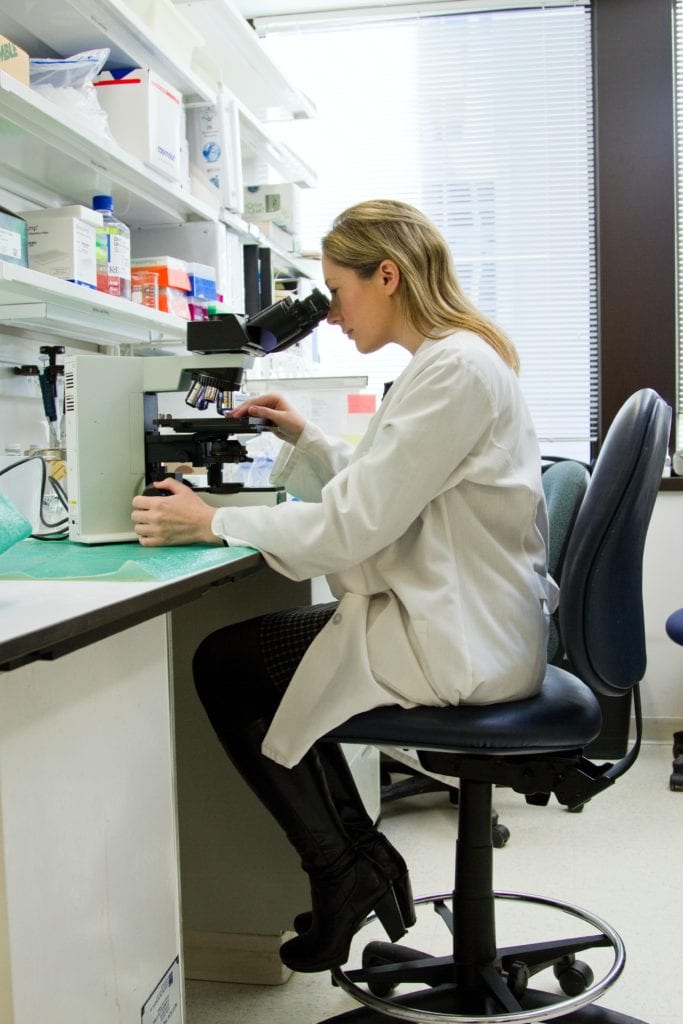
Is your thyroid working as well as it should?
Is your thyroid working as well as it should? This vital gland located at the front of the neck plays a key role in many crucial body functions. it is important therefore to make sure it is functioning properly. Thyroid issues are common and one in 20 of us has a diagnosed condition. Prevalence is much higher amongst women and issues become increasingly common the older we get. What is particularly surprising is that a staggering 60% of individuals are unaware that their symptoms are thyroid related. Does this sound like you?
Why is thyroid function important?
The reason the thyroid is so important is because it produces hormones that affect nearly every part of the body. These hormones influence our metabolism and how our body uses energy. This in turn affects our weight, skin health, sensitivity to the cold, mood, digestive function and more. If our thyroid is underactive then we are more likely to feel tired, cold and depressed. We are also likely to see our weight increasing even when we reduce our calorie intake…Not good, eh? If on the other hand our thyroid is overactive, then we might experience weight loss, together with a persistent tiredness. Additionally we may feel weak, experience increased heart rate, anxiety, twitching and trembling.
Why GP thyroid tests don’t tell the whole story
Thyroid function can be checked by a GP blood test, but GP tests may not identify all cases of dysfunction. There are three key reasons for this.

1. Not all thyroid markers tested on GP tests
The first reason is that only certain markers of thyroid function are routinely tested on the NHS. These include thyroid stimulating hormone (TSH) and thyroxine (T4). Some practices will also test the active hormone triiodothyronine (T3) but this is not standard practice. Thyroid function is dependent upon the conversion of Thyroxine to T3. Any issues influencing this, therefore, will not be identified if this marker is not tested
One marker of thyroid function that is not routinely measured on the NHS is thyroid antibodies (TPO / Tg). These antibodies are produced when the body starts to attack it’s own thyroid gland and can often be elevated before TSH and T4 move outside of the test reference ranges. I see many clients in my clinic who have elevated thyroid antibodies but have other markers within medical reference ranges. These clients usually have many symptoms of thyroid dysfunction and do well with nutritional approaches designed to support healthy thyroid function.
2. Thyroid reference ranges differ in different countries
Another reason why standard blood tests do not pick up thyroid problems is because the reference range for thyroid stimulating hormone in the UK is very broad. This means that some of my clients have a TSH level within a UK reference range that in another country would be considered problematic. These individuals would therefore be medically treated elsewhere, whereas a client with the same results in the UK would not. Having results outside of medical reference ranges does not mean your function is optimal. Many individuals have sub-clinical thyroid imbalances which are significant enough to result in multiple symptoms
3. Some aspects of thyroid dysfunction are difficult to measure
So finally, there are some aspects of thyroid function that are difficult to measure… For the thyroid to function properly, we depend on cellular uptake of free hormones. New research has shown that transport of hormones across cell membranes is reduced in a wide range of conditions. These include diabetes, depression, insulin resistance, bipolar disorder, chronic fatigue syndrome, fibromyalgia, migraines, stress, anxiety, chronic dieting and more. This means that even if your blood levels of thyroid hormones look fine, the hormones may not be exerting their effects. The net result of which is that you still feel unwell…
So what does this all mean?
So the bottom line is that if you have symptoms that make you think that your thyroid isn’t working properly, then this may well be the cause of your problems. GP testing is a good place to start, but then it might be helpful to contact a nutritional therapist or functional medicine practitioner who can advise you on additional testing options and can work with you holistically to improve your overall health.
If you would like help with your thyroid symptoms then why not book in for a free health assessment call to see if I can help. Alternatively have a look at the finger-prick thyroid test kits in our online shop here

Download my free eBook 10 Steps to Superhealth for free. Just fill in the form below.
